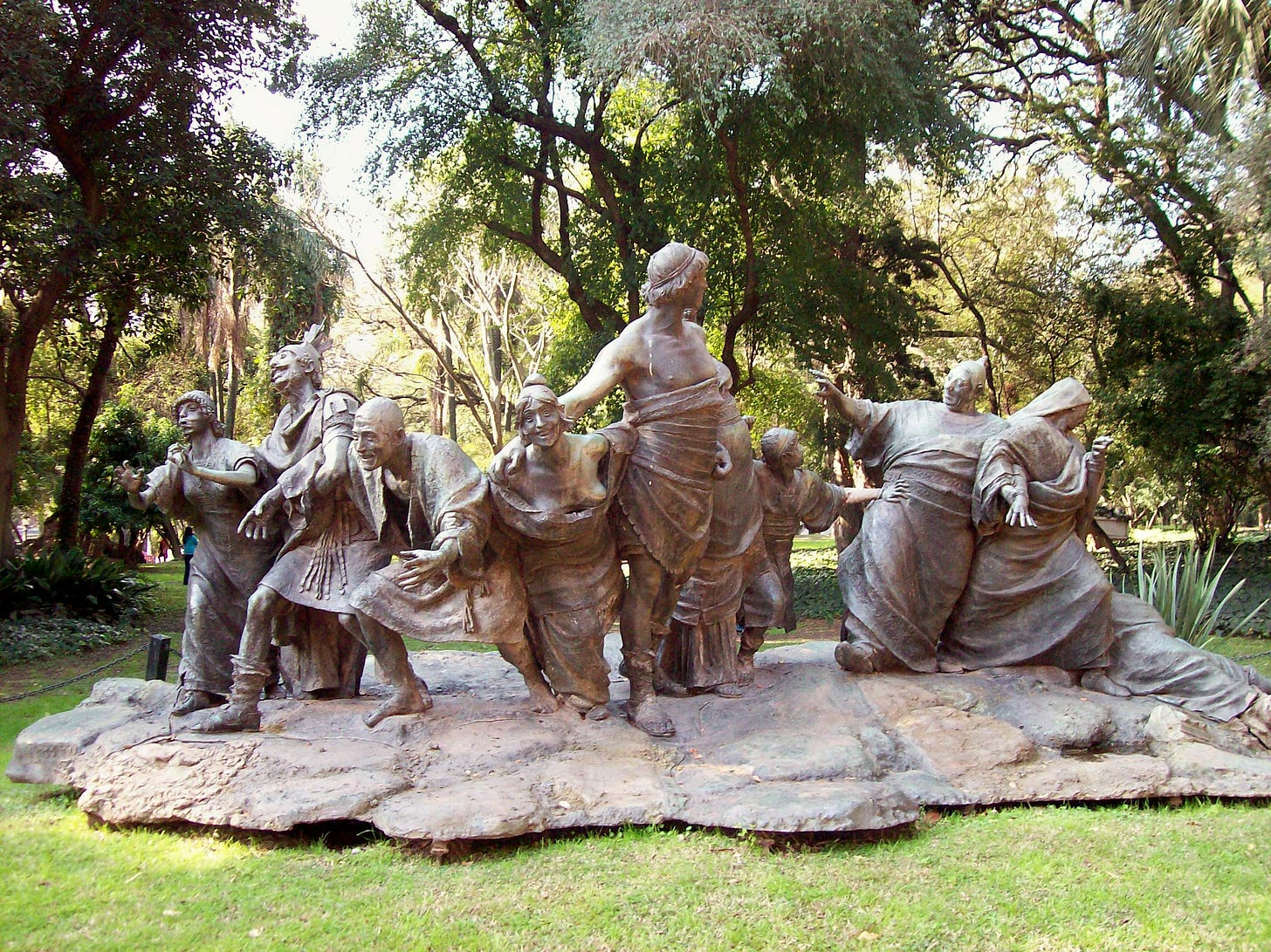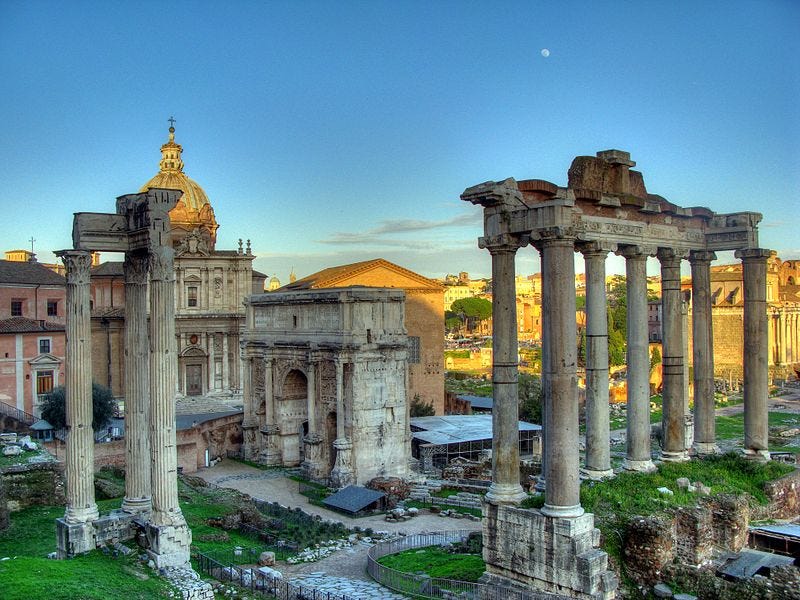Dear Classical Wisdom Reader,
Today is a very special day... Well, technically it started yesterday...but considering just how important it was in the ancient world, I think we can continue the party!
After all, it was the event that Catullus (XIV) described as “the best of days,” while Seneca complained that the “whole mob has let itself go in pleasures” (Epistles, XVIII.3).
It was a time when people rejoiced, visited friends, gave gag gifts, lit candles and sang in the streets – naked. Now, it would be difficult to stop a party that good, wouldn’t it? So, it shouldn’t be a surprise to anyone that when Rome went Christian, they couldn’t just end the favorite festival of the year… they had to somehow convert it into Christmas, though perhaps with little success.
But what was this intoxicated, Pagan, Pre-birthday party that the ancient Romans loved so dearly? It was none other than Saturnalia.
Originally celebrated on December 17th, this festivus for the rest of us was so popular that it was eventually extended over the week. It started with a sacrifice at the Temple of Saturn, in the Roman Forum, followed by a public banquet, private gift giving of gags, and ended with an all out carnival.
Auspiciously meant to worship the God Saturn (or Greek Kronus), it essentially grew into an event that seems to have captured some of the best and worst of human qualities.
On the one hand, slaves were treated as equals – just for that one week, of course.
They were allowed to wear their master’s clothes and a pileus, a felt cap normally worn by a freeman. Additionally, their owners waited on them (though the slaves still prepared the meal) and these temporarily unowned men were permitted to gamble and relax in public unmolested.
Moreover, It was a time for free speech, where the lower levels of society could insult the uppers without punishment. Indeed, the Augustan poet Horace called it “December liberty.”
On the other hand, murder seemed to crop up all too regularly.

The Catiline conspirators intended to fire the city and kill the Senate on the Saturnalia, when everyone was busy partying (Cicero, The Third Oration Against Catiline, X). Caracalla plotted to murder his brother during the celebrations (Dio, LXXVIII.2.1).
And to top it all off, there were those ‘human sacrifices’ to the god Saturn, which were mostly dead, unsuccessful gladiators, according to third century sources.
Then there were the relatively harmless frat boy qualities of the festival. For instance, there was an appointed Saturnalicius princeps, similar to a ‘Lord of Misrule’ who, with the point of his finger, could command celebrants to sing naked or jump into cold water.
The former being the source for modern day caroling.
Interestingly, the future emperor Nero is recorded as playing the role in his youth and while we can not say for certain how this character affected his rule, we can take a few amusing ganders.
Over the centuries many of the particulars of Saturnalia adapted, improved or were left behind, but in one way or another it was still celebrated throughout the entire Roman empire. Its popularity remained unwavered straight through the 3rd and 4th century, right up to Rome’s adoption of Christianity.
Saturnalia did not completely vanish at that point… instead it was pulled into the religious bosom, where it would influence the new customs and cultures that began with early Christianity.
And so, on this festive day, we here at Classical Wisdom wish you a very merry time and say: Io Saturnalia!
All the best,
Anya Leonard
Founder and Director
Classical Wisdom
P.S. One way to celebrate Saturnalia is to remember the importance of Free Speech… a feature of the holiday that I think we can appreciate, especially in our here and now. Classical Wisdom Members can enjoy this fantastic and important discussion on the topic - the history of Free Speech from Socrates onwards below.
Not a member? Subscribe today and enjoy all our resources, including our recently release Ebook: The Sides of Jesus.







December 25 was the birthday of the I"Invincible Sun". Sol Invictus.
Christmas is a pagan holiday, with roots in Nordic Yule and Roman Saturalia. The real "reason for the season" is the winter solstice, not church. Great article, happy Saturnalia! (Festivus for the rest of us).
Also, it's so great to see Anya and Lexi talking together, both of them are awesome!